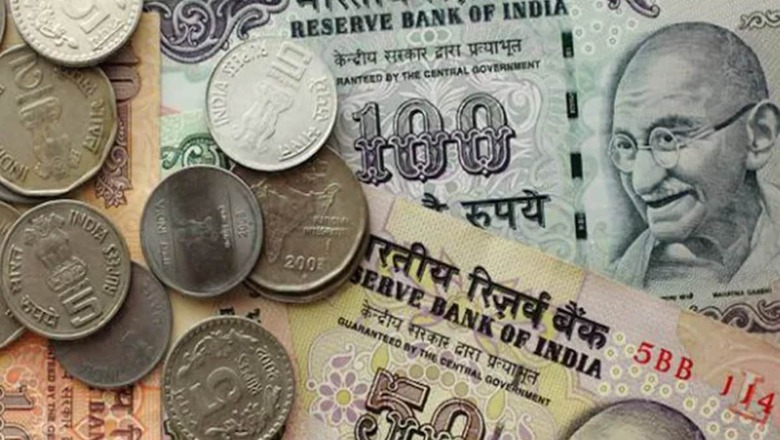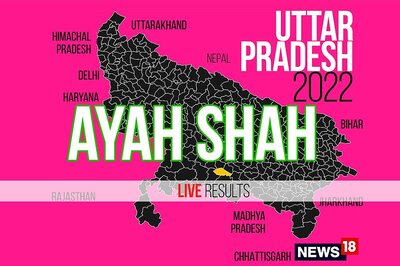
views
A significant proportion of consumers plan to park their funds in savings accounts, while a smaller percentage plan to invest in their own business or in health and life insurance. A new report revealed insights on consumer investment plans for the new financial year, perceptions on education infrastructure in India, and their interaction with new AI tools.
Axis My India, the consumer data intelligence company, released its latest findings of the India Consumer Sentiment Index (CSI), a monthly analysis of consumer perception on a wide range of issues.
This month’s CSI survey revealed that a majority of 26% plan to park their funds in savings accounts while 20% plan to invest in their own business.
Moreover, 16% want to invest in health insurance / life insurance while 13% want to invest in real estate. 8% is looking to invest in FD and RD (Fixed Deposits and Recurring Deposits) and 7% in Gold.
While the majority of the females (33%) have favoured Savings Account, a majority of males have chosen to invest in Business.
The interest rates on savings accounts vary from bank to bank and are subject to change. The average interest rate on savings accounts ranges from 3.5% to 4% per annum, however, it may be different according to the respective bank. These rates are not considered as very lucrative if compared with other special deposits schemes.
The report said that the May net CSI score, calculated by percentage increase minus percentage decrease in sentiment, is at +09, which has increased by 1 point compared to last month.
Overall household spending has increased for 56% of the families, which is the same as last month. The net score, which was +49 last month, has decreased to +48 this month. The states, which reflected the highest increase, are West Bengal with 70%, followed by Andhra Pradesh and Telangana with 61%. The age group 26-35 displayed the highest increase (59%).
Pradeep Gupta, chairman and MD, Axis My India, said, “The survey reveals that for a significant population savings account is still the preferred medium to park their funds. Additionally, there is an obvious contrast in education infrastructure preferences between urban and rural areas, with overall a positive attitude towards government schools if they provide superior facilities and quality education.”
“Our report highlights the increasing importance of AI tools like ChatGPT in the workplace, with a majority of young adults viewing it as an advantage to their work. These insights provide valuable information for businesses, policymakers, and educators to better understand and meet the evolving needs of consumers,” Gupta added.
In an attempt to understand conscious purchase behaviour, the survey found out that 18% is willing to pay more than usual but less than 10% for environmentally friendly and sustainable products. While 11% are willing to pay 10-20% more, only 6% can pay 20% more. This showcases a clear rise in the preference of conscious products driven by a sense of responsibility to make ethical and responsible choices.
The findings also revealed that this behaviour resonates the most with 18-25YO, among men and those whose family monthly income is Rs 31000 and above.
Of those surveyed, 51% said that their children go to Government schools and 57% said theirs go to Private schools. 56% of rural India are going to Government schools and 57% of urban India are going to Private schools. Only 1% said their children go to International schools.
Additionally, 82% of those whose children go to Private or International schools are positive about sending their children to Government schools if it assures superior facilities and quality education.
Of those surveyed (NCCS AB, Graduates & above) 6% have heard about ChatGPT. Importantly, 81% of those that have heard view the AI tool as an advantage to their work while a combined 24% views it as an obstacle to job security and data reliability. A majority of those who have heard about the AI tool and view it as an advantage belong to the age group of 18-25YO.
The survey was carried out via Computer-Aided Telephonic Interviews with a sample size of 10,206 people across 35 states and UTs. 64% belonged to rural India, while 36% belonged to urban counterparts. In terms of regional spread, 26% belong to the Northern parts while 25% belong to the Eastern parts of India.
Moreover, 29% and 19% belonged to Western and Southern parts of India respectively. 64% of the respondents were male, while 36% were female. In terms of the two majority sample groups, 32% reflect the age group 36YO to 50YO and 29% reflect the age group of 26YO to 35YO.
Read all the Latest Business News, Tax News and Stock Market Updates here




















Comments
0 comment